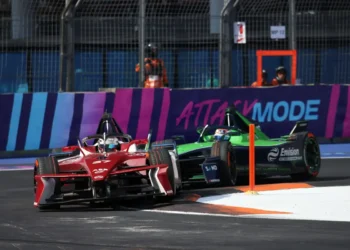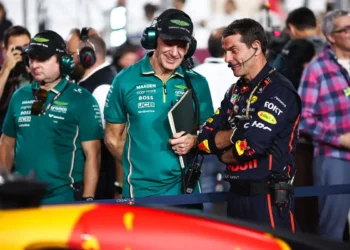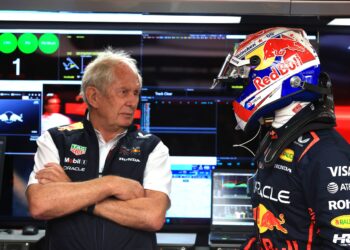In a legal drama that could reshape the NASCAR landscape, Michael Jordan’s 23XI Racing and Front Row Motorsports (FRM) secured a crucial victory in their antitrust lawsuit against NASCAR. After a crushing denial of their first preliminary injunction, it seemed the teams were headed for disaster. But a twist of fate—and a change in judges from Frank Whitney to Kenneth Bell—turned the tide, granting the teams the right to compete as chartered teams in 2025.
This monumental ruling ensures not only their competitive future but also financial stability, as it temporarily halts what could have been a devastating chain reaction for the teams.
Avoiding the Open-Team Abyss
Had the ruling gone the other way, 23XI Racing and FRM would have faced the grim reality of competing as open teams. Without charter protection, these teams would lose guaranteed spots in every race, including the lucrative Daytona 500. Beyond the prestige, open status comes with financial uncertainty, jeopardizing revenue from sponsors and race payouts.
The potential fallout was already taking shape. Monster Energy, a key sponsor for 23XI Racing, began reevaluating its commitment when the first injunction was denied. According to Jeffrey Kessler, attorney for the plaintiffs:
“On November 23, 2024, 23XI received another email from Monster Energy, stating that it was reconsidering its entire relationship with 23XI.”
Similarly, FRM’s largest sponsor, Love’s Travel Stops, expressed concern about the team’s ability to fulfill contractual obligations. Without charters, the stability of both organizations—and their relationships with major backers—hung in the balance.
Tyler Reddick’s Star Power at Risk
Adding to the pressure was the potential departure of 23XI’s star driver, Tyler Reddick. The 2024 NASCAR Cup Series regular-season champion and Championship 4 contender became a critical figure in the courtroom arguments. Reddick’s contract allowed him to leave the team if its charter status wasn’t secured—a loss that would have been catastrophic for the organization.
Judge Bell recognized this threat as a key factor in his decision, stating:
“The ‘present prospect’ of the loss of star drivers constitutes irreparable harm that ‘cannot fully be rectified by the final judgment after trial.’”
Reddick’s success on the track not only brought 23XI its first Championship 4 berth but also attracted premier sponsorships, making his retention essential to the team’s survival.
Denny Hamlin’s Victory Dance
The ruling sparked celebrations within the 23XI camp, with co-owner Denny Hamlin leading the charge. Taking to social media immediately after the decision, Hamlin exuberantly posted, “YESSSSSSS!!!!!!!” His reaction underscored the relief and excitement coursing through the organization. Hamlin later told SiriusXM NASCAR, simply and triumphantly: “We won.”
The decision allows 23XI and FRM to not only compete as chartered teams but also proceed with their planned expansion. This includes acquiring a third charter from Stewart-Haas Racing, further solidifying their growth and competitiveness.
A Precedent-Setting Ruling
The court’s decision carries significant implications for NASCAR as a whole. Judge Bell’s acknowledgment of NASCAR’s monopolistic control over stock car racing could have far-reaching consequences. He noted:
“NASCAR’s Cup Series is the only premier stock car racing series in the United States… Therefore, NASCAR fully controls which race teams can compete at the highest level of stock car racing—effectively, it has a 100% market share.”
This statement aligns with 23XI and FRM’s broader accusations of monopolistic practices, including restrictions on competing in rival series and exclusive supplier agreements. While the lawsuit is far from over, the ruling shifts the power dynamic, giving the teams momentum and leverage in their fight for industry reform.
What’s Next for NASCAR?
While the ruling is a victory for 23XI and FRM, NASCAR retains the right to appeal. Additionally, if the plaintiffs ultimately lose the lawsuit, the charter transfers could be revisited, potentially reversing the teams’ gains. However, as it stands, this decision represents a significant win for the plaintiffs and a potential turning point in NASCAR governance.
A New Era for NASCAR?
Michael Jordan, Denny Hamlin, and the 23XI-FRM alliance have proven that they’re not just competitors on the track—they’re challengers of the status quo. This ruling not only secures their immediate future but also raises questions about NASCAR’s control over the sport.
With the door now open for charter expansion and increased team autonomy, the court’s decision could mark the beginning of a new era in stock car racing. As the legal battle continues, one thing is clear: the fight isn’t just about charters—it’s about the future of NASCAR itself.









